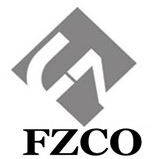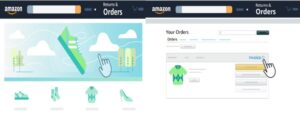Customs controls: Is your business ready?
From 1 January 2022, businesses that permanently move goods to Great Britain from other EU countries. It will need to aware that full customs controls will introduce.
The New Year onwards, goods entering Britain from within the EU. It will require new customs arrangements. The government plans to phase in further changes later in the year. The physical checks for food products and pre-notification for agricultural products required from July 2022.
Here’s a full list of the changes you need to know about:
Border controls
01 January 2022, your goods may be directed to an Inland Border Facility for customs checks. If these checks cannot be done at the border. From this date, you must also submit an “arrived” export declaration. If your goods are moving through one of the border locations that use the arrived exports process.
Customs declarations
Traders will have to make import customs declarations and pay relevant tariffs at the point of import from 01 January 2022. You should consider how you are going to submit customs declarations and pay any charges that are due.
Postponed VAT Accounting
If you’re a VAT-registered importer. You can continue to use Postponed VAT Accounting (PVA) on all customs declarations. It will require you to account for import VAT, including supplementary declarations, except when HMRC have told you otherwise. PVA has already provided significant cash flow benefits for thousands of our customers. HMRC expects that most businesses will choose to use it.
Rules of Origin
You must use the correct country code for the country of origin. The country of dispatch when you complete your customs declaration. The EU country code can no longer use.
Commodity codes
UK codes will change from 01 January 2022. The new codes can be found here.
It may too late for Simplified Declarations
A new Simplified Declarations application make now may not authorise before 01 January 2022. As it can take up to 60 calendar days to complete the checks. You will also need to have a Duty Deferment Account in place.
Summary of UK customs and border control changes in 2022
From the middle of the year documentary checks of export health certificates (EHCs) for products of animal origin. Phytosanitary certificates for plants and plant products, together with identity and physical checks of some consignments. It will introduce at BCPs in three phases:
The latest UK Border Operating Model outlines the following dates:
- January 2022 – full customs controls (pre-authorisation for hauliers entering the UK from the EU, rules of origin, and pre-notification for animal, food, and plant products). The temporary easement for the requirement to hold supplier declarations (where required). Prior to issuing statements on origin for export to the EU. It will also cease for businesses using the EU-EU trade agreement. Suppliers’ declarations will usually be necessary where you purchase goods for onward sale unaltered, or you need evidence of the originating status of production inputs to calculate the origin of your goods.
- July 2022 – There will new requirements for export health certificates for animal and plant products. It’s also for safety and security declarations for all imports will also become mandatory. This is a pre-notification usually provided by the haulier or shipper.
- September 2022 – Full certification and examination of dairy produce subjects to sanitary and phytosanitary (SPS). The controls has been further delayed until September instead of the planned date of July 2022.
- November 2022 – There are additional delays for the last remaining goods subject to sanitary and phytosanitary (SPS) controls. It will require certification and physical checks. This health certification and physical checks for all remaining animal products under regulation, including fish and composites.
What should you do now?
To submit import declarations in a timely manner. You need to have the required customs information on your goods in advance. You will expect to provide your customs intermediary with your EORI number together. The information on the type of goods: their quantity, value, weights, country of origin, and any certifications etc. Your intermediary will advise you of their exact requirements. Import entries can lodge up to three weeks prior to the goods being shipped. It will give you plenty of time to obtain the requested information.



